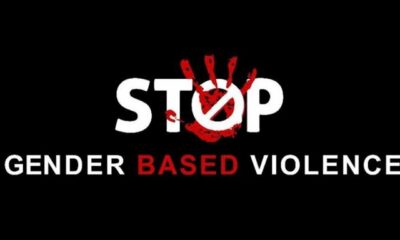News
Are We Losing the War on Gender-Based Violence in South Africa?

The Grim Reality: Rising Numbers in the Fight Against GBV
South Africa’s battle against gender-based violence is showing alarming signs of slipping out of control. Latest crime statistics reveal a disturbing increase: 5,578 women and 1,656 children were murdered in the year ending March 2024. In just the first quarter of this year, nearly a thousand women lost their lives to violence, with reported rapes nudging upwards by 0.3%. Sexual offences surged by over 21% in some categories.
Despite the flood of awareness campaigns and policy promises, the fight seems to be inching backward, not forward. Social media conversations reflect a growing frustration among citizens who feel overwhelmed and underprotected.
When Institutions Fail: The Case of the Clicks Nurse
A recent case involving a nurse from Clicks in Brakpan exposes the harsh realities many South African women face—especially in the workplace. After reporting sexual harassment, she alleges retaliation, sidelining, and even unauthorized deductions from her salary.
Brenda Madumise-Pajibo of Wise4Afrika calls this a glaring example of institutional failure. “Women reporting harassment are often met with disbelief, ridicule, or worse,” she says. The silence and inaction from human resources and leadership only deepen the trauma and discourage others from speaking out.
This story isn’t just about one nurse; it paints a broader picture of workplaces across the country where women’s rights and dignity are routinely compromised.
Why Are We Losing? Systemic and Cultural Barriers
GBV activist Prince Ntsikelelo Soga points fingers at two big hurdles: a weak justice system and entrenched patriarchal norms. Police mishandle many cases; investigations drag on and convictions are rare. Survivors often face “secondary trauma” when they attempt to report abuse.
Culturally, harmful attitudes normalize violence against women and treat such violence as a “private matter.” This makes it harder for survivors to seek justice and for communities to intervene.
Even protection orders, which should offer safety, are too often ignored, allowing abusers to continue their violence unchecked.
Legal Experts and Advocates Call for Action
Labour analyst Bukani Mngoma stresses the legal obligations employers have in preventing and addressing workplace sexual harassment. “Employers must have clear policies, investigate promptly, and protect complainants,” he says. Failure to do so opens them up to legal liability and further harms victims.
Opposition spokesperson Lisa Schickerling paints a bleak picture of police capacity, highlighting that out of over 1,100 stations, only 134 have dedicated GBV desks. She accuses the government of under-resourcing the police, neglecting enforcement, and lacking political will to truly tackle the crisis.
What’s Needed to Turn the Tide?
Experts argue that South Africa must overhaul its approach to GBV:
-
Strengthen and fully resource the justice and police systems
-
Foster a culture of zero tolerance in workplaces and communities
-
Support survivors with accessible shelters, counseling, and legal aid
-
Engage men and boys in changing harmful gender norms
-
Hold institutions accountable for failing victims
As Brenda Madumise-Pajibo puts it, “If the system is contaminated, it must be dismantled and rebuilt with integrity, accountability, and swift action.”
A Nation at a Crossroads
The surge in gender-based violence is a call to action. South Africa’s social fabric is at risk when women and children live in fear and injustice prevails. Every statistic represents a life cut short, a family shattered, a community hurt.
The ongoing struggle against GBV demands more than words, it needs real, sustained change that reaches into courts, homes, and workplaces. South Africans are watching closely, hoping for a future where safety and respect are rights, not luxuries.
{Source: The Citizen}
Follow Joburg ETC on Facebook, Twitter , TikTok and Instagram
For more News in Johannesburg, visit joburgetc.com



























